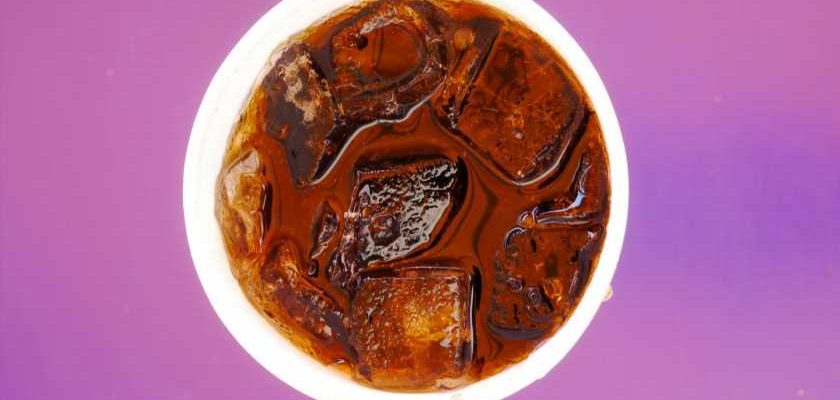This is the big problem with TikTok’s “healthy Coke” trend
TikTok’s latest food and drink trend claims to provide a healthy alternative to Coca-Cola. But one writer believes we need to be careful about the language we use when promoting health and wellness trends online.
TikTok is known for its various food and health trends, from baked oats and Weetabix cheesecaketo feta pasta. Sometimes the app is a source of delicious recipes and useful food hacks, but often, the health tips shared on TikTok are more insidious, promoting unhealthy eating habits and mindsets. And this might be the case when it comes to TikTok’s latest trend, “healthy Coke”.
The trend promotes an alternative to Coca-Cola, encouraging people to mix balsamic vinegar and non-alcoholic seltzers. The TikTok that inspired the trend has over 6.4 million views, and users have been recreating the drink for themselves.
You may also like
What is a healthy diet? How diet culture corrupted our idea of good nutrition
’Healthy’ Coke is more damaging to our teeth
Of course, there’s nothing wrong with trying to maintain a balanced diet, but describing food and drink items as “healthy alternatives” can be problematic. Firstly, dentists are warning that this particular ‘healthy Coke’ recipe is more damaging to teeth than the original fizzy drink.
In fact, the American Dental Association has released a statement about the risks of eroding enamel and staining in response to the trend. “I love balsamic vinegar, but I enjoy it more on my salad than in my drinking glass. It’s much kinder to the teeth than bathing them in a beverage blend of two acids,” Dr Edmond Hewlett said in the statement. “The more acidic the drink, the greater the risk of tooth erosion with frequent consumption.”
’Health’ alternatives demonise normal foods
And then we get onto the whole diet culture aspect of this bizarre idea. The word “healthy” is pretty vague and it isn’t a description that can be applied in a one-size-fits-all kind of way. What’s healthy for one person isn’t necessarily healthy for someone else, especially when you take into account mental health and people’s personal nutritional needs.
Describing something as a “healthy alternative” turns the original food or drink into something negative. Coke might not be something that you would turn to for its nutritional benefits or as a health drink, but there’s nothing inherently bad about drinking it from time to time if it’s something that brings you joy. In fact, consuming food or drinks that you enjoy is a great way of looking after yourself.
“Diet Coke and Coke Zero, in particular, don’t contain damaging levels of sugar because they use sweeteners – which aren’t unhealthy,” says registered dietician Kimberley Neve. “For the normal person, having a Coke Zero every now and then is absolutely nothing to worry about.”
Looking at consuming those foods and drinks in terms of “rewarding yourself” is another toxic idea from diet culture that suggests you should only be able to do things you enjoy if you’ve sacrificed something else.
“Food should not be boring,” says Neve, adding: “Foods don’t have a moral value. And when you attach a moral value to food that can lead to an unhealthy relationship with food.”
You may also like
Why ‘boosting metabolism‘ is just another diet culture lie
The biggest problem with this trend is that labelling foods as “bad” or “good” is too simplistic and it encourages us to think about the ways we eat in very binary, potentially restrictive ways. Food and drinks have various nutritional qualities and it’s almost always redundant to describe foods as wholly bad or good.
“This dichotomy of bad or good exacerbates issues where people might already have an unhealthy relationship with food,” Neve explains. “Plus, often the foods that are promoted as ‘healthier’ in these trends aren’t that healthy.” Neve says that foods are often given a “health halo”, meaning they are marketed as being a lot more healthy than they actually are.
If the idea of mixing balsamic vinegar and seltzer as a drink appeals to you, go ahead and make the most of this new TikTok trend. But there’s no need to feel guilty if you’d simply prefer a can of Coke.
Images: Getty
Source: Read Full Article
